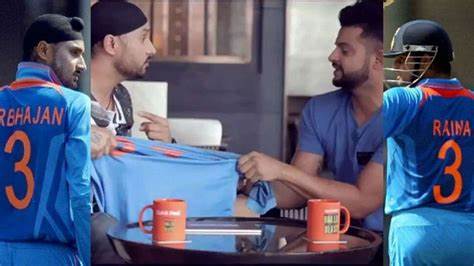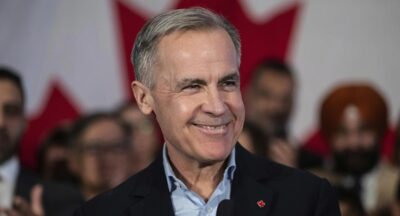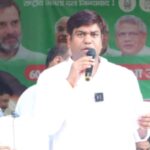A police complaint has been lodged against former Indian cricketers Harbhajan Singh, Yuvraj Singh, and Suresh Raina, accusing them of insulting over 10 crore disabled individuals in India. The complaint, filed by an advocacy group representing the disabled community, alleges that remarks made by the cricketers during a recent online conversation were derogatory and demeaning.
The controversy stems from a social media interaction where the cricketers were seen discussing various topics, including cricket and social issues. During the conversation, comments purportedly belittling the abilities and contributions of disabled persons in India were allegedly made, sparking outrage among advocacy groups and social media users alike.
In response to the backlash, the advocacy group filed a formal complaint with local law enforcement, citing sections of the Indian Penal Code that pertain to insulting or demeaning remarks against any community or group of individuals. The complaint highlights the sensitivity and impact of such statements on the dignity and rights of disabled individuals, who constitute a significant portion of India’s population.
The cricketers, known for their achievements on the field and charitable efforts off it, have yet to publicly respond to the allegations. However, social media platforms have been abuzz with discussions, both defending and condemning the remarks attributed to them. Supporters argue for context and intent, while critics emphasize the need for accountability and respect in public discourse, especially from public figures with significant influence.
The incident has reignited debates on social responsibility, freedom of expression, and the boundaries of public speech in the age of digital media. Advocates for disability rights stress the importance of inclusive language and awareness in preventing discrimination and promoting equal opportunities for all individuals, regardless of physical or mental abilities.
Authorities are expected to conduct an investigation into the matter, evaluating the evidence presented in the complaint and determining whether legal action is warranted. The outcome of this case could potentially set a precedent for how public figures are held accountable for their words and actions concerning sensitive societal issues.
As the controversy unfolds, it serves as a reminder of the power dynamics at play in public discourse and the responsibilities that accompany influence and visibility. The incident has prompted soul-searching among fans, commentators, and public figures alike, urging a deeper understanding of the impact of words on social cohesion and inclusivity in diverse societies.
The cricketers involved have yet to issue a formal statement addressing the allegations, leaving the public and advocacy groups awaiting their response amidst calls for sensitivity and respect towards all members of society, including those with disabilities.



 VIP Party Chief Mukesh Sahani’s Father Murdered in Darbhanga
VIP Party Chief Mukesh Sahani’s Father Murdered in Darbhanga 